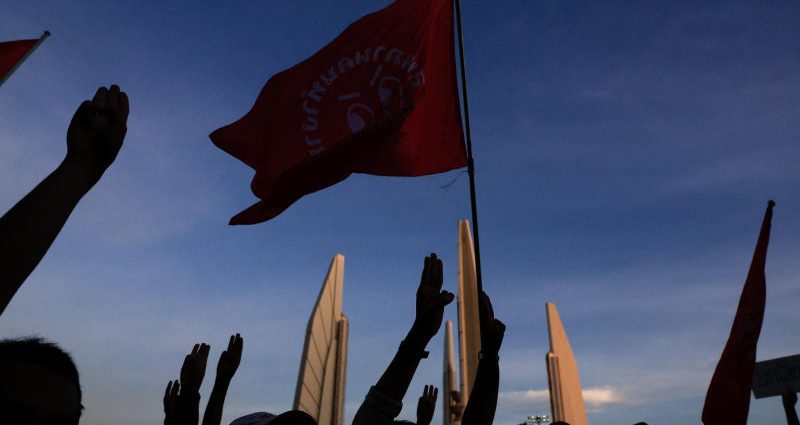
The Constitutional Court suspended Prime Minister Prayut Chan-o-cha on Wednesday while it hears a case that could see the former general removed from office.
Following the court’s decision, here is a brief look at the past two turbulent decades in Thai politics.
– ‘Lost Decade’ –
2001 – Policeman-turned-billionaire telecoms magnate Thaksin Shinawatra wins at the polls promising social welfare schemes.
2005 – Thaksin repeats his electoral triumph, heading up the first civilian administration to complete a four-year term in a history rattled by army takeovers.
2006 – While at the UN in New York, Thaksin is toppled in a bloodless coup. A period of protests and violent clashes ensues, with historians dubbing the prolonged instability the “Lost Decade”.
– Yellow and Red –
2008 – Thaksin is convicted in absentia on corruption charges he says are politically motivated and flees into self-exile.
Anti-Thaksin protesters known as “Yellow Shirts” storm Bangkok’s airports, shutting them down for over a week to protest a Thaksin ally serving as premier — who is soon removed.
2010 – More than 90 people are killed as army forces commanded by Gen Prayut open fire on pro-Thaksin “Red Shirts” protesting in downtown Bangkok.
2011 – Thaksin’s younger sister Yingluck is elected as Thailand’s first female prime minister.
2014 – Month-long anti-Yingluck protests turn violent. A snap 2014 election is annulled and the military — led by Gen Prayut — seizes power.
– Reform and delays –
2016 – Gen Prayut oversees a crackdown on dissent and wins a referendum to change the constitution.
Thailand mourns the death of revered King Bhumibol Adulyadej, who was seen as a figure of unity over a seven-decade reign.
2017 – Yingluck flees the country to avoid negligence charges and joins her brother in self-exile.
Gen Prayut’s government oversees the drafting of a new constitution that restricts leaders to eight-year terms.
2018 – Elections are announced for 2019 after repeated delays, lifting hopes as new parties emerge.
2019 – Main opposition party Pheu Thai wins the most seats in a delayed and controversial election, but Gen Prayut’s Palang Pracharath Party cobbles a coalition government, with the ex-general remaining PM.
– Protests, pandemic –
2020 – The Future Forward Party is dissolved.
Youth-led pro-democracy rallies spring up in Bangkok, attracting tens of thousands of people at their peak.
The movement calls for Gen Prayut’s resignation and a rewrite of the military-scripted constitution.
The protesters also break a long-held taboo by calling for reform to the monarchy — which is protected from criticism by harsh royal defamation laws that can see perpetrators jailed for up to 15 years per charge.
Scores of student leaders are arrested and yo-yo in and out of jail.
2021 – Covid-19 pandemic restrictions and the arrest of many protest leaders takes the steam out of the protest movement.
– Arrests and anticipation –
May, 2022 – Former Yingluck Shinawatra government minister Chadchart Sittipunt wins a landslide victory in the Bangkok governor election, spooking elites.
August, 2022 – Prayut faces a legal challenge to his rule, with the kingdom’s Constitutional Court agreeing to rule on whether he has reached his term limit as PM.

